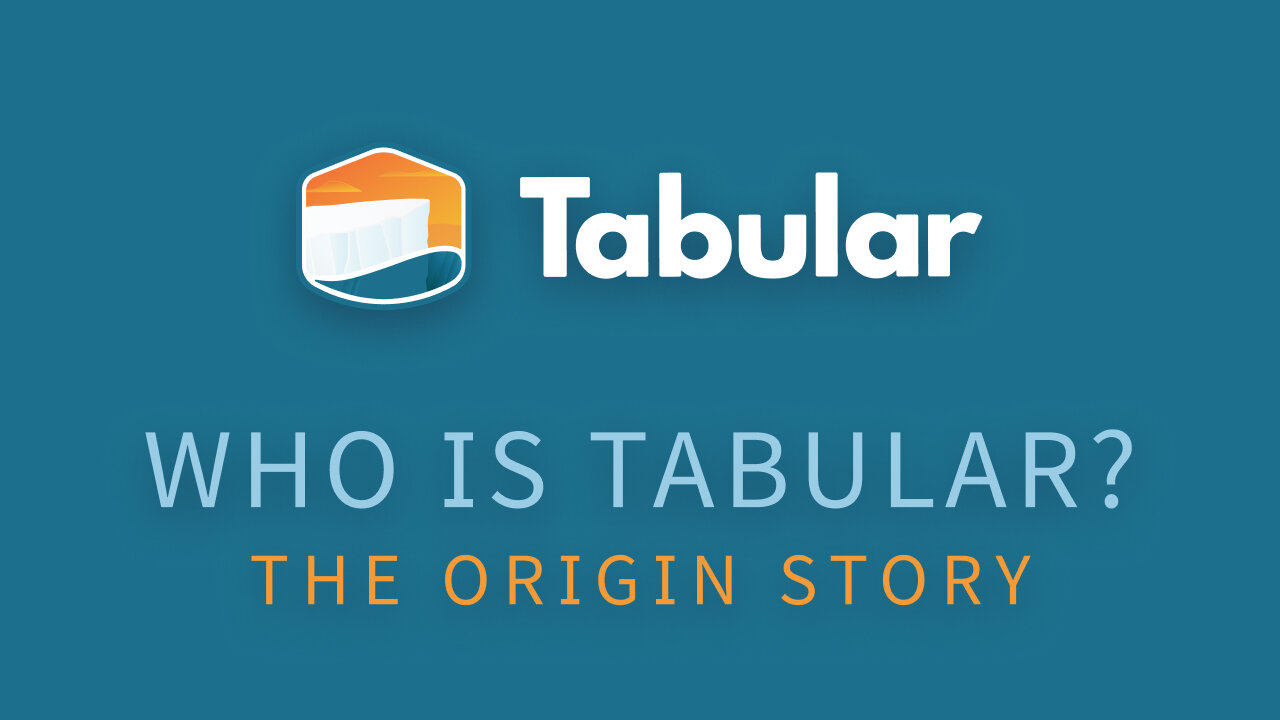Premium Only Content

Tabular Founders: Fireside Chat
Join Ryan Blue, Daniel Weeks, and Jason Reid for a candid fireside chat. They discuss why they decided to build a data platform, what problems Tabular solves, who they are building it for, and—most importantly—why data engineers will love it.
Video Transcription
Jason Reid: [cold start] …and the nice thing is it doesn’t matter where you’re starting from. It could be you're starting from I have event data I want to stream into something, I don’t know exactly what I want to do with it yet, but I’ve got to collect it somewhere. Or it could be you have data and you want to run simple ad-hoc SQL against it using—you know—Athena or some sort of simple Trino. Or it could be that you’re doing deep ML. No matter where you start Tabular and Iceberg can support that use case and then when you’re ready for the other one’s nothing new has to happen. Right? You just plug in that next engine like we talked about. And so you can just start anywhere and be confident that you can grow in any direction as your needs evolve.
[…]
Ryan, you’re the co-founder and CEO at Tabular, maybe you can start with why did you bring me along on this journey.
Ryan Blue: You know the data engineering side and the technology side and how they should fit together. And I always thought that your perspective at Netflix was invaluable to informing what we needed to build. And that’s exactly what you’re doing now.
Jason: So far so good.
Ryan: Yeah, that worked out amazingly well.
Jason: …just as long as we make data engineering lives easier I’m pretty happy.
Ryan: Exactly! That’s why we exist.
Jason: Dan, Ryan convinced you to come along on this crazy journey with us. What’s the big reason you decided it was time to leave Netflix and do Tabular?
Dan: I went to Tabular to lead engineering and build a platform that people could reuse without out all the complexity and the cost. And get the latest state-of-the-art, building on top of Iceberg, in a world where engines can interconnect and you have incredible capability across lots of different platforms.
Jason: I think that one of the appeals of the modern data stack is that it allowed companies to get up and running—doing relatively sophisticated data things at scale—very easily. Right? And if there's any really big complaint about the modern data stack is it was so easy to spin up to do data things, that it gets out of control quickly, and now your cost vectors are of control but you’re likely locked into the architecture that you have for various reasons. And I think what Tabular provides is another avenue there. Where you still get the simplicity to spin up something quickly. Get started, prove value, all of the things that we love about the modern data stack, but something that is also based on an open format and has the cost and scalability mechanics of cloud.
Dan: …a system like this that everyone always pushes to the end is security.
Jason: [off camera] Always.
Dan: Where you think your use cases are driving the growth but we’ll take care of security later when we really need it but as every security expert knows, security isn’t the thing that you do last. You have to do it from the beginning otherwise it’s going to be really hard to introduce. And so starting with something that has that built-in and it's easy, and you can evolve that along with your actual practices means that you’re starting from a much better place and you don't have to reinvent it later.
Jason: So, Tabualr represents the next generation of cloud data warehousing. If you had nothing today, the easiest thing to do is I can dump files, JSON files, or parquet files onto S3 and I can give some sort of semblance of schema to those things, or schema on read, some sort of tool to query them. Maybe I’m using Athena or something similar. And that’s nice because it has very few moving parts and there’s a lot of rough edges, there’s a lot of problems that you run into over time if you only adopt that as your data warehousing architecture but I get its appeal. Right? From a cost and flexibility and simplicity perspective. And what I’m really excited about for Tabular, is that we can bring all of the solves for all the problems for what that architecture and for what that pattern represents with the simple ease of use that it also has. For example, putting data into Tabular and reading it from any engine is easier than it is to just put parquet files on S3 and read them with Athena. But now that data is also optimized, it's secured …it can be used from other engines simply. So I’ve gotten a bunch of superpowers and haven’t had to trade off complexity on my side. And that’s a huge win for customers.
-
 51:38
51:38
Man in America
17 hours agoSINISTER: Cartel Child Trafficking Network Exposed by Investigative Journalist w/ Hollie McKay
64.7K24 -
 3:05:12
3:05:12
DLDAfterDark
10 hours ago $11.10 earnedDLD Live! What is "The Best" Camo For Your Gear & Equip??
41.6K5 -
 33:13
33:13
Beach Broadcast
16 hours ago5/3/2025 - Trump Effect and Comms! Big week ahead!
58.6K54 -
 11:39
11:39
Tundra Tactical
12 hours ago $12.25 earnedSurprise Releases For the Trailer Park & The Micro-Brewery.
69.8K10 -
 19:51
19:51
Bearing
23 hours agoMy VAMPIRE WIFE is in a SATANIC MURDER CULT (Allegedly)🧛♂️🔪🩸
90.1K44 -
 13:08
13:08
Exploring With Nug
20 hours ago $17.26 earnedWe Explored a Lake with an Underwater Drone — Here's What We Found!
90.8K5 -
 15:07
15:07
Mrgunsngear
1 day ago $16.06 earnedStreamlight TLR-1 HL-X USB Weapon Light Review 🔦
98.5K8 -
 3:31:40
3:31:40
Barry Cunningham
14 hours agoREACTING TO THE DOGE INTERVIEW | MORE NEWS | NEW AFTER PARTY! (Re-Stream)
95.5K201 -
 14:42
14:42
FATTACnation
17 hours agoBudget Optic Worth your Money???
24K8 -
 8:00:01
8:00:01
SpartakusLIVE
13 hours agoVerdansk DUOS w/ GloryJean || Saturday SPARTOONS
23.1K1